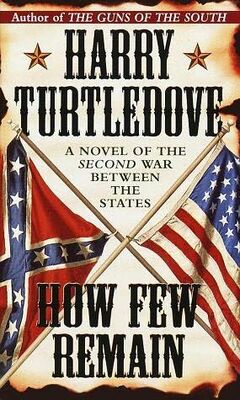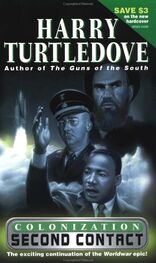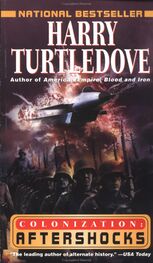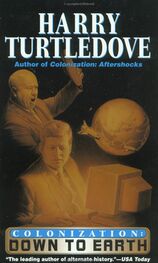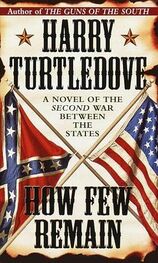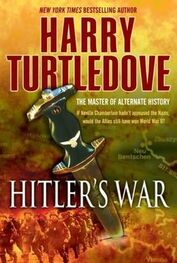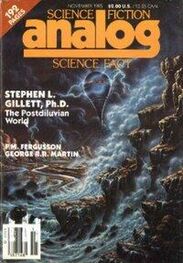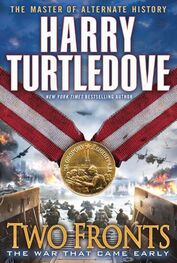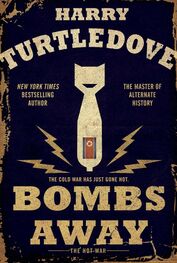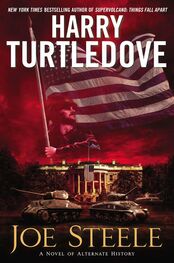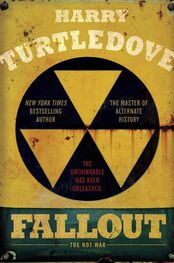He picked up the pen and poised it above the paper. No words came out. He was as silent and frustrated as a veteran actor-say, one of the Booth brothers, whose careers went back before the War of Secession, and whose tours had crisscrossed the USA and the CSA ever since-inexplicably stricken with stage fright in front of a packed house.
Clay Herndon trotted up to him, carrying a sheet full of words from edge to edge and top to bottom. Sam ground his teeth, even though he knew the words were Blaine's and not Herndon's. "Here's the transcription of the statement," Herndon said, waving it about. "I'll give it to the typesetters. What are you going to say in your-?" Most of a sentence too late, his eye fell on the still-blank page in front of Clemens.
Sam's eye fell on it, too… balefully. "Damned if I know," he ground out.
"Even if it's only 'Mary had a little lamb,' you'd better say it fast," Herndon said. "You were right-we can't be the only paper getting a new edition to press as fast as we can set the type."
"I know, God damn it, but I'm dry," Sam said. "I haven't been this dry since the stagecoach ride through the desert from Salt Lake to Virginia City."
"You've got to say something," Herndon insisted.
"Yes, but what?" Clemens said. "What the devil can I say that Blaine didn't already? The war's done. We lost. Any fool can see that, and even a fool can see it now, or Blaine wouldn't have given up. The thing is so obvious, it's impossible to write about without sounding like an idiot." Herndon didn't say anything. Sam caught him not saying anything. "When has that ever stopped me before, eh?"
"You can't prove that's what I was thinking," the reporter answered with a grin.
"And a damned lucky thing for you I can't, too," Sam said. "Go on, get that set. I'll come up with something in the next few minutes, or else we just have to go on without me." He didn't like that. It was embarrassing. But getting the news out on the street third would be a lot more embarrassing. Herndon dashed away to the typesetters.
It's over. Almost of its own will, Clemens' pen set down two words. He stared at them. They came close to serving as an editorial by themselves. What else did he need to say? He thought about that for a few seconds, then wrote one more sentence: Thank heaven! He nodded, picked up the paper, and hurried after Clay Herndon.
Author's Note
T his is a novel about the aftermath of a Confederate victory in the Civil War. It is not in any sense a sequel to my earlier novel about a Confederate victory in the Civil War, The Guns of the South. Here, the Confederacy is imagined to have won by natural causes, so to speak, rather than by intervention from time-travelers with an agenda of their own, and to have done so in 1862 rather than 1864.
The differences are crucial. The Civil War is, and deserves to be, perhaps the most intensely examined period of American history. For better and for worse, all that the United States is today (even that we say The United States is, not The United States are), it is because of what happened in and immediately after the Civil War. Change anything there, and subsequent history changes drastically.
Take the three cigars around which Lee's Special Order 191 was wrapped. In real history, two Union soldiers, Corporal Barton Mitchell and First Sergeant John Bloss, discovered them after a Confederate courier lost them. Learning Lee's battle plan and how widely Lee had divided his army while invading U.S. territory let General McClellan win the battle of Antietam. That victory, in turn, let Lincoln issue the Emancipation Proclamation, which changed the moral character of the war. It effectively made sure that Britain and France, which were at the time trembling on the brink of recognizing the Confederate States and forcing mediation on the United States, did not do so.
Had those cigars and that order not been lost… the world would be a different place today.
I need to make a couple of remarks about my handling of the characters in this novel. All speeches and writings attributed to Samuel Clemens, in particular, are of my own devising. The same does not apply to the political speeches I have put in the mouth of Abraham Lincoln. In them, I have frequently used his own words on the relationship between labour and capital and between employee and employer, sometimes verbatim, sometimes adapting his thought on slaves and owners to apply to workers and owners. I have done this not only for dramatic effect but also to show the plausibility (and what more can one demand of a novelist?) of the views I have ascribed to him in the changed circumstances I have envisioned here.
